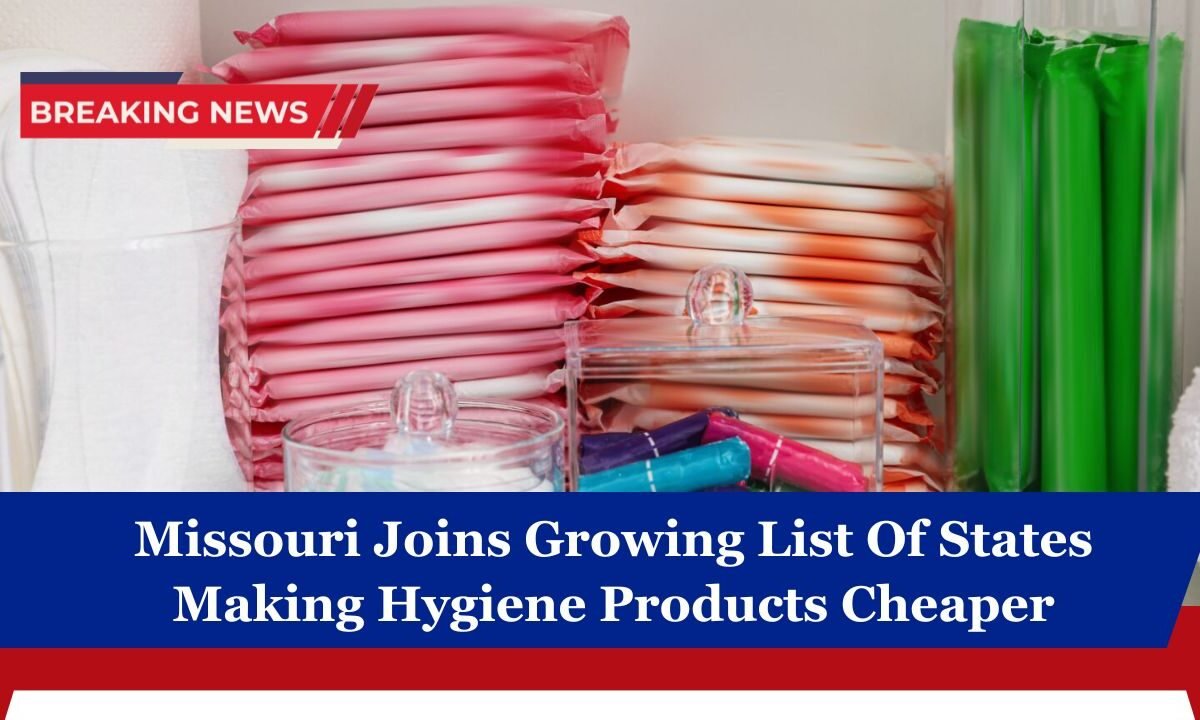Missouri has taken a significant step toward making hygiene products more affordable. Effective August 28, 2025, the state has eliminated both state and local sales taxes on essential items like diapers, feminine hygiene products, and incontinence supplies.
This change brings immediate financial relief to families and individuals across Missouri.
What Changed and When?
Missouri officially removed the so-called ‘luxury tax’ (4.225%) on specific hygiene essentials effective August 28, 2025.
Previously one of fewer than 20 states still taxing such items, Missouri now joins a growing group recognizing these as necessities. The law passed via House Bill 594, approved in May and signed by the Governor in July.
Why It Matters: Tax Cuts That Make a Difference
- Families gain direct savings: Many households spend a significant portion of limited income on diapers or menstrual supplies. Removing the 4.225% tax aligns these items with everyday essentials. ([turn0search4])
- Support for vulnerable populations: Organizations like the St. Louis Area Diaper Bank distribute millions of diapers and period products annually and have described this as a “monumental win.” ([turn0search8])
- Legislative backstory: Missouri had seen 17 bills introduced in recent years to remove these taxes, illustrating strong bipartisan advocacy. ([turn0search1])
- Economic trade-offs: The change is expected to reduce state revenues by around $33 million annually, with local governments losing up to $47 million per year. Officials expect economic ripple effects as families spend the savings. ([turn0search8])
What’s Covered Under the Exemption?
| Product Type | Examples |
|---|---|
| Diapers (Child & Adult) | Infant diapers, adult incontinence briefs |
| Feminine Hygiene Products | Pads, tampons, menstrual cups, liners, period underwear |
| Incontinence Products | Protective undergarments, external pads, catheters |
| Sales Tax Rate Changed From… To | From 4.225% (luxury rate) → 0% (state & local) |
All retailers must apply the exemption automatically at checkout. No forms or applications are required. ([turn0search16]) If tax is mistakenly charged, consumers can request corrections or refunds. ([turn0search16])
Immediate Benefits and Broader Impact
1. Financial Relief for Families:
Low-income households often face “diaper insecurity”, impacting work, school attendance, and health. This law eases that burden significantly. ([turn0search1], [turn0search7])
2. Health & Access Gains:
Diaper shortages can lead to health risks. For many girls and women, the cost barrier for menstrual products has caused them to miss school or work. This exemption helps address period poverty. ([turn0search1], [turn0search7])
3. A Social Justice Victory:
Calling hygiene products “luxuries” overlooked public health needs. The law reflects a shift toward equitable access and gender-neutral policy. ([turn0search1], [turn0search7])
4. Statewide Alignment with Other States:
Missouri now joins over two dozen states that exempt diapers, with 19 states previously taxing menstrual products. ([turn0search1], [turn0search5])
Missouri’s move to eliminate sales tax on diapers, feminine hygiene, and incontinence products is more than just a budget tweak—it’s a lifeline for families and a win for public health and equity.
By recognizing these items as necessities, the state is easing financial burdens, supporting the most vulnerable, and aligning with broader national trends.
Missouri families now can redirect essential dollars toward food, rent, education, and wellbeing.




